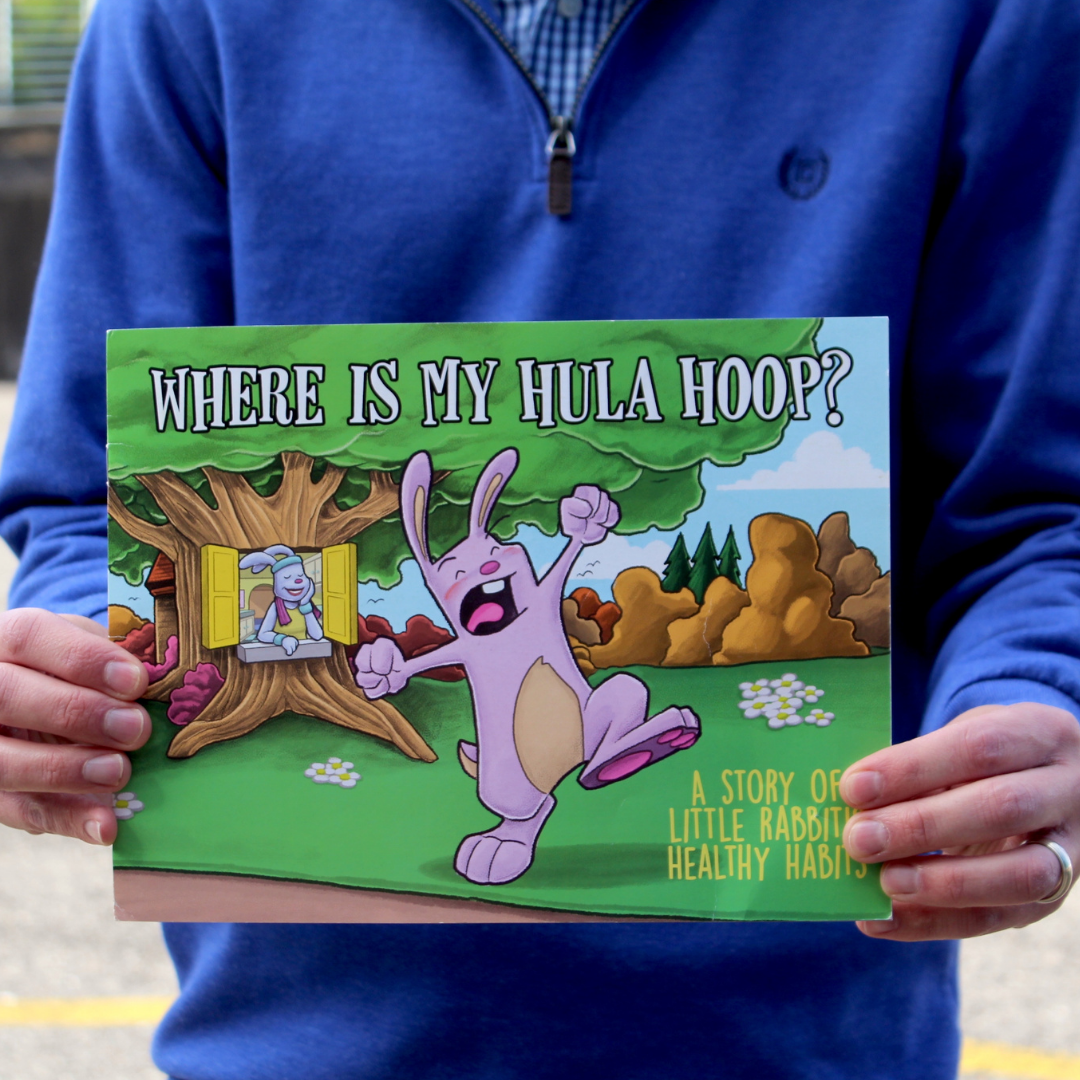
Written by: Anne Heaney
A team of UAB Obesity Health Disparities Research Center (OHDRC) researchers recently published a children’s book detailing simple, healthy changes families can make to develop healthy habits.
The book — Where is My Hula Hoop? — was published as part of a project called HABITS, a full research project funded by an OHDRC and led by Gareth Dutton, Ph.D., and Sarah Salvy, Ph.D. Their work is supported by a grant from the National Institute on Minority Health and Health Disparities (U54MD000502).
With the help of a community partner, Family Guidance Center of Alabama in Montgomery, the team has developed a program that equips federally funded home educators already delivering services in families’ households to also help families develop healthier habits around diet, exercise, and healthy weight management.
“Home visiting has traditionally targeted a number of important social, familial, academic, and health indicators such as school readiness, age-appropriate vaccinations, physical health, and mental health. But they didn’t fully cover topics related to a healthy lifestyle such as weight management, obesity prevention, and that sort of thing,” Dutton said.
An additional part of HABITS was the publication of the storybook. It follows the main character, Little Rabbit, through a day of eating healthy and exercising, showing kids ways to make simple, sustainable changes to their daily lives.
Because of the nature of the project, the team had to pivot during the COVID-19 pandemic. According to Dutton, in a pre-COVID world, delivering home visitation services was a convenient infrastructure. However, accomplishing the same mission post-COVID has presented complications.
“What was initially conceptualized as an in-home visitation program had to become a remotely-delivered program,” Dutton said.
According to postdoctoral trainee Camille Schneider-Worthington, Ph.D., R.D., it was a mixed bag as to how different families have been able to participate. “Some do their program visits by Zoom, FaceTime, or some sort of video call, but there are quite a few families that don't have that capability,” she said.
Despite the challenges, HABITS has been able to ramp up and recruit families. Currently, there are 125 families who have enrolled and completed baseline assessments, and 24 who have completed the study.
“It's been a great partnership that this HABITS study has built; filling that gap to help leverage the existing infrastructure and relationships that the home educators have. They are now able to cover these broader topics with families and give them some concrete strategies and materials to use related to healthy habits around diet and exercise and healthy weight management,” Dutton said.